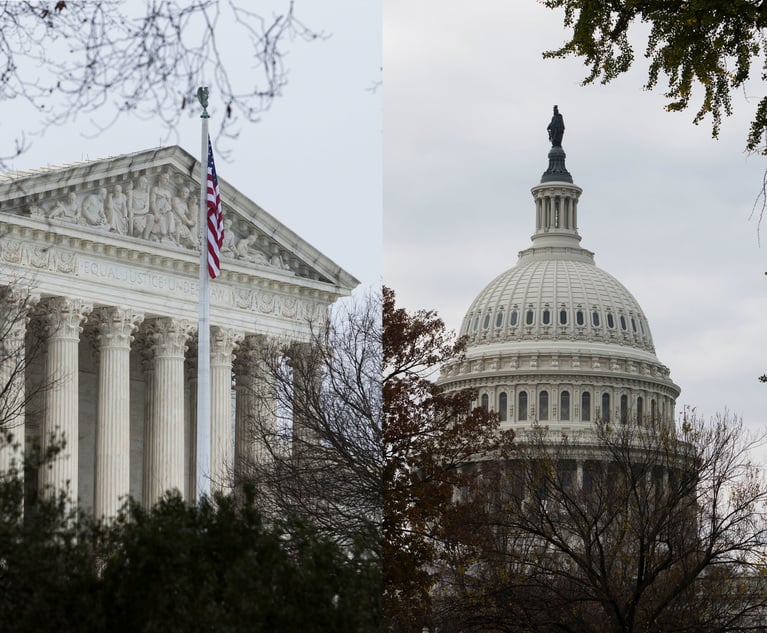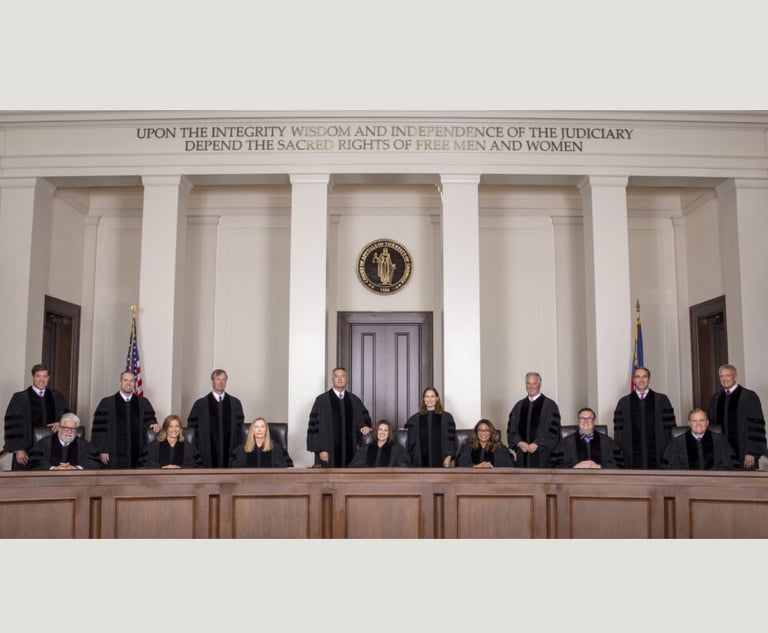The World of NFTs and Their Implications In Intellectual Property Law
NFTs have been all the rage in the world. So what exactly are NFTs, and how do they reconcile with the basic tenets of intellectual property law?
May 03, 2021 at 04:43 PM
9 minute read
This article appeared in The Intellectual Property Strategist, an ALM/Law Journal Newsletters publication that provides a practical source of both business and litigation tactics in the fast-changing area of intellectual property law, including litigating IP rights, patent damages, venue and infringement issues, inter partes review, trademarks on social media – and more.
NFTs have been all the rage in the world. Mike Winkelmann, a digital artist known professionally as Beeple, sold a collage of his digital images for a record-breaking $69 million. About two weeks later, Twitter CEO Jack Dorsey's first tweet ("just setting up my twttr") sold for $2.9 million. Sports icons like LeBron James and Tom Brady have leapt into this market, with a video clip of less than a minute showing James dunking a basketball having been sold for over $200,000. And now, in what many are calling a "social media experiment" that could inspire an episode in the dystopian sci-fi television series Black Mirror, one can buy and sell tokens based on speculating in celebrities' reputations on BitClout, a social cryptocurrency exchange platform.
So what exactly are NFTs, and how do they reconcile with the basic tenets of intellectual property law?
This content has been archived. It is available through our partners, LexisNexis® and Bloomberg Law.
To view this content, please continue to their sites.
Not a Lexis Subscriber?
Subscribe Now
Not a Bloomberg Law Subscriber?
Subscribe Now
NOT FOR REPRINT
© 2025 ALM Global, LLC, All Rights Reserved. Request academic re-use from www.copyright.com. All other uses, submit a request to [email protected]. For more information visit Asset & Logo Licensing.
You Might Like
View All
Roberts Calls Court's Relationship With Congress 'Strained.' Who's to Blame?

Thwarting of $14B US Steel Deal Won't Dampen Japan-U.S. M&A, Lawyers Say

Few Atlanta-Centric Law Firms Expected to Pay Associate Bonuses at Market Scale
5 minute read
Experts Not Foreseeing More Rules Governing Prosecutors' Actions After Georgia Court's Removal of DA From Election Case
8 minute readLaw Firms Mentioned
Trending Stories
- 1The Quiet Revolution: Private Equity’s Push Into Law Firms
- 2Restoring Trust in the Courts Starts in New York
- 3'Pull Back the Curtain': Ex-NFL Players Seek Discovery in Lawsuit Over League's Disability Plan
- 4Tensions Run High at Final Hearing Before Manhattan Congestion Pricing Takes Effect
- 5Improper Removal to Fed. Court Leads to $100K Bill for Blue Cross Blue Shield
Who Got The Work
Michael G. Bongiorno, Andrew Scott Dulberg and Elizabeth E. Driscoll from Wilmer Cutler Pickering Hale and Dorr have stepped in to represent Symbotic Inc., an A.I.-enabled technology platform that focuses on increasing supply chain efficiency, and other defendants in a pending shareholder derivative lawsuit. The case, filed Oct. 2 in Massachusetts District Court by the Brown Law Firm on behalf of Stephen Austen, accuses certain officers and directors of misleading investors in regard to Symbotic's potential for margin growth by failing to disclose that the company was not equipped to timely deploy its systems or manage expenses through project delays. The case, assigned to U.S. District Judge Nathaniel M. Gorton, is 1:24-cv-12522, Austen v. Cohen et al.
Who Got The Work
Edmund Polubinski and Marie Killmond of Davis Polk & Wardwell have entered appearances for data platform software development company MongoDB and other defendants in a pending shareholder derivative lawsuit. The action, filed Oct. 7 in New York Southern District Court by the Brown Law Firm, accuses the company's directors and/or officers of falsely expressing confidence in the company’s restructuring of its sales incentive plan and downplaying the severity of decreases in its upfront commitments. The case is 1:24-cv-07594, Roy v. Ittycheria et al.
Who Got The Work
Amy O. Bruchs and Kurt F. Ellison of Michael Best & Friedrich have entered appearances for Epic Systems Corp. in a pending employment discrimination lawsuit. The suit was filed Sept. 7 in Wisconsin Western District Court by Levine Eisberner LLC and Siri & Glimstad on behalf of a project manager who claims that he was wrongfully terminated after applying for a religious exemption to the defendant's COVID-19 vaccine mandate. The case, assigned to U.S. Magistrate Judge Anita Marie Boor, is 3:24-cv-00630, Secker, Nathan v. Epic Systems Corporation.
Who Got The Work
David X. Sullivan, Thomas J. Finn and Gregory A. Hall from McCarter & English have entered appearances for Sunrun Installation Services in a pending civil rights lawsuit. The complaint was filed Sept. 4 in Connecticut District Court by attorney Robert M. Berke on behalf of former employee George Edward Steins, who was arrested and charged with employing an unregistered home improvement salesperson. The complaint alleges that had Sunrun informed the Connecticut Department of Consumer Protection that the plaintiff's employment had ended in 2017 and that he no longer held Sunrun's home improvement contractor license, he would not have been hit with charges, which were dismissed in May 2024. The case, assigned to U.S. District Judge Jeffrey A. Meyer, is 3:24-cv-01423, Steins v. Sunrun, Inc. et al.
Who Got The Work
Greenberg Traurig shareholder Joshua L. Raskin has entered an appearance for boohoo.com UK Ltd. in a pending patent infringement lawsuit. The suit, filed Sept. 3 in Texas Eastern District Court by Rozier Hardt McDonough on behalf of Alto Dynamics, asserts five patents related to an online shopping platform. The case, assigned to U.S. District Judge Rodney Gilstrap, is 2:24-cv-00719, Alto Dynamics, LLC v. boohoo.com UK Limited.
Featured Firms
Law Offices of Gary Martin Hays & Associates, P.C.
(470) 294-1674
Law Offices of Mark E. Salomone
(857) 444-6468
Smith & Hassler
(713) 739-1250








